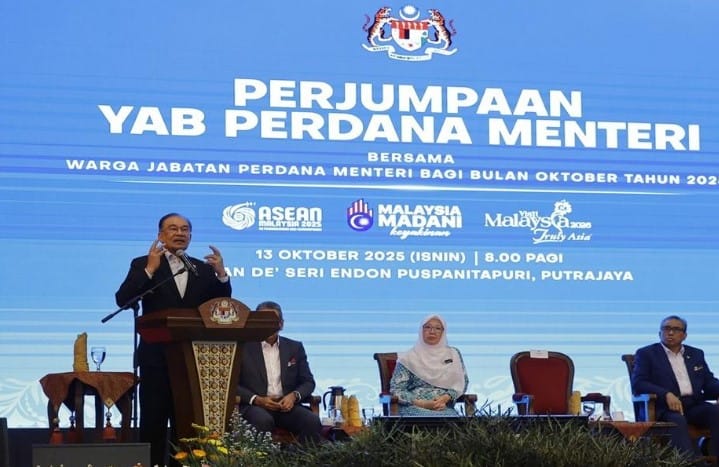
PUTRAJAYA, May 30 — Only 17 essential services sectors are allowed to operate during the implementation of the total lockdown, effective from June 1 to 14.
Senior Minister (Security Cluster), Datuk Seri Ismail Sabri Yaakob, said that these sectors included food and beverages (including for animals); health and medical care (including dietary supplements, animal care and clinics as well as veterinary services); water; energy; security (defence, emergency, welfare and humanitarian assistance) as well as solid waste management, public cleaning and sewerage.
Other sectors are transportation (land, water, or air); port, shipyard, and airport services and operations (including loading, lighter, cargo handling and storage or packing of commodities); communications (media, telecommunications, and internet, post and courier, as well as broadcasting for the purpose of information delivery).
“Others are the insurance banking, takaful and capital market sectors; community credit (mortgage and Ar-Rahnu); e-commerce and information technology; production; distillation; storage; supply and distribution of fuels and lubricants; hotels and places of accommodation (only for quarantine purposes, isolation and employment for necessary services; not for tourism purposes).

“Also allowed are critical construction, maintenance and repair; forestry services (limited to enforcement) and wildlife, as well as logistics, limited to the delivery of necessary services,” he said at a press conference on the implementation of the total lockdown, here, today.
As for the manufacturing sector, Ismail Sabri said that they would not be allowed to operate during the first phase of the total lockdown period except for 12 services, with a capacity of 60 per cent of employees only.
He said it included aerospace (components and maintenance, repair and overhaul); food and beverages; packaging and printing materials related to food and health materials only; personal care items and detergents; electrical and electronics; oil and gas including petrochemicals and petrochemical products, as well as textiles for the production of personal protective equipment (PPE).
He said for the agricultural sector, fisheries, livestock, plantation and commodity sectors and their supply chains will also be allowed to operate, including shops selling fertilisers and pesticides, and oil palm fruit processing plants, as well as lorries, transporting oil palm, rubber, pepper and cocoa.
“The construction sector will also be allowed to operate. This involves critical maintenance and repair works, and construction of major public infrastructure, as well as the construction of buildings that provide complete accommodation for workers at construction sites. The permitted working capacity is optimal,” he said.
Meanwhile, he said that shopping complexes would be closed during the period, except for supermarkets, hypermarkets, convenience stores, pharmacies, and grocery stores that have food and beverage sections, as well as basic necessities.





More Stories
Nation Recovers RM15.5 Billion Of Its Revenue, War Against Corruption And Cartels To Go On – Anwar
Budget 2026 Reflects Govt’s Commitment To Integrity, Curbing Leakages – Azam
Dewan Negara Passes Five Bills Including Legal Aid And Public Defence 2025